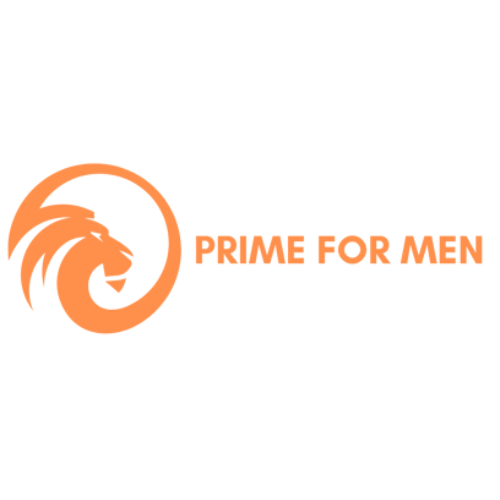Have you ever thought that the secret to being your best might not be about working non-stop?
In today’s fast world, we often forget how crucial rest and recovery are. But studies show that enough downtime is key for our mental and physical health. Just like a car needs regular maintenance, our bodies need time to recharge.
This section will look into how making recovery a priority can boost well-being for everyone. It can lead to more happiness and being more productive in life.
Key Takeaways about Importance of Rest and Recovery
- Overtraining syndrome affects about 60% of top athletes and 30% of regular athletes.
- It’s advised to take a rest day every seven to ten days if you’re doing high-intensity workouts.
- Kids between 6-12 should sleep 9-12 hours a night, and teens need 8-10 hours.
- Not getting enough sleep can lower your endurance and raise the chance of serious injury.
- Rest and recovery help prevent injuries, both sudden and overuse, in athletes.
- Using active recovery methods and regular rest can make training more effective and improve performance.
The Vital Role of Rest in Well-being
Rest is key to good mental health, affecting how we feel and think. Adults need 7 to 8 hours of sleep each night. This helps the body recover and stay healthy. Getting enough rest is crucial for a good mood and a better life.
How Rest Affects Mental Health
Rest is crucial for mental health. Not sleeping enough can make anxiety and depression worse. It can also make us more emotional.
Rest helps fix our thinking skills, making us remember things better and stay focused. It also makes us feel happier. Using relaxation techniques can help manage stress and improve our mood.
Rest as a Stress Reducer
Using stress-reducing techniques is important to fight daily stress. Rest is a strong way to fight stress by calming our bodies. People who sleep well feel more stable emotionally.
Doing calm activities after exercise, like walking or biking, helps us recover and think clearer.
| Aspect | Benefits of Rest |
|---|---|
| Mental Health | Prevents anxiety and depression, promotes emotional balance |
| Cognitive Function | Enhances memory, focus, and decision-making |
| Stress Management | Reduces physiological stress responses, improves mood |
| Physical Health | Aids in tissue repair, muscle regeneration, and overall recovery |
Understanding Recovery: A Key Component of Fitness
Recovery is key in fitness, affecting both body and mind. It boosts performance and lowers injury risks. This part looks at how recovery helps in many ways.
The Physiological Benefits of Recovery
Recovery is crucial for athletes. It helps muscles repair and grow. Rest lets muscles heal and get stronger, leading to bigger muscles and more strength.
It also balances hormones. Cortisol drops back to normal, and testosterone, vital for muscle growth, might go up when resting.
- Rest helps the brain and muscles work better together.
- It reduces the chance of getting overuse injuries by letting tissues heal and adapt.
- Getting 7-9 hours of sleep a night is key for repair.
- Doing light activities like walking or yoga helps blood flow and speeds up recovery.
The Psychological Effects of Recovery
Recovery also boosts mental health. High training can lead to burnout and less motivation. Knowing how recovery helps keeps you focused and excited to work out.
- Stress-reducing activities like meditation and deep breathing help your mind.
- Drinking enough water is key for recovery, helping muscles repair and keeping you performing well.
- Eating right after working out is important too. Foods with proteins and carbs help fix muscles and replenish energy.
Importance of Rest and Recovery for Athletes
Athletes need to understand how crucial recovery is to do well in their sports. They must focus on both physical and mental recovery to perform at their best. Finding the right balance between hard work and rest is key to avoiding injuries and burnout. This balance helps athletes grow and improve their performance.
Physical Repair Mechanisms
After hard workouts, muscles get tiny tears that need time to heal. This healing time is crucial for physical repair. Athletes should have at least one rest day a week for these repairs. Beginners might need two to three rest days. Coaches and fitness experts stress the importance of recovery for athletes. It’s key for muscle growth and repair.
Athletic Performance Improvement
Good recovery methods boost athletic performance. Rest days help prevent overtraining syndrome (OTS), which can cause burnout. Studies show that moderate exercise can fight off colds, but too much training can make you more likely to get sick. Quick recovery helps muscles grow and keeps reaction times fast, which is important for winning in competitions.
| Recovery Strategy | Description | Recommended Frequency |
|---|---|---|
| Rest Days | Days off from intense training to allow muscle repair. | 1–3 days/week |
| Sufficient Sleep | Quality sleep enhances muscle recovery and performance. | 7–9 hours/night |
| Nutrition | Proper ratios of carbs to protein help replenish energy stores. | Post-exercise and rest days |
| Hydration | Maintaining fluid balance supports overall physical repair. | Daily |
| Active Recovery | Low-intensity exercises like walking or yoga. | As needed |
Why Rest is Important for Everyone
Rest is key for everyone, not just athletes. It helps keep the immune system strong and supports overall health. When we get enough rest, our body fights off infections better. Studies show how important rest is for our immune health.
Rest and Immune Function
Rest helps our immune system work better, making us less likely to get sick. A study found that sleeping rats got better faster than awake ones. Not resting enough weakens our immune system, making us more prone to other illnesses.
With enough rest, we avoid getting sicker from a weak immune system. This shows how closely rest and immune health are linked.
Maintaining Cognitive Health
Rest is crucial for our brain health. Adults need 7-9 hours of sleep to stay sharp. Not sleeping enough can make us less focused and forgetful.
Using techniques like the Pomodoro Technique helps us stay productive with breaks. These breaks improve our focus and mental clarity. It’s key to keeping our minds sharp and our overall health good.
The Science Behind Sleep Cycles
Sleep cycles are key to feeling good and recovering well. They help us understand how sleep works and its importance. By going through different stages like REM and NREM sleep, we get the rest we need. This rest is vital for muscle recovery and overall health, especially for athletes and those who love fitness.
Stages of Sleep and Their Benefits
Each sleep cycle has various stages that help our bodies and minds. Let’s look at these stages and what they offer:
| Stage | Duration | Benefits |
|---|---|---|
| Stage 1 NREM | 5-10 minutes | Transition from wakefulness to sleep |
| Stage 2 NREM | Approximately 45% of sleep | Initial mental and physical relaxation |
| Stage 3 NREM | About 25% of total sleep | Essential for physical recovery and growth hormone release |
| REM Sleep | Approximately 25% of sleep | Involvement in memory consolidation and emotional regulation |
Impact of Sleep on Muscle Recovery
Sleep and muscle recovery are closely linked. Deep NREM sleep is when our bodies fix and grow muscles. This stage is crucial for muscle repair and growth. Athletes know how important sleep is for recovery. Not getting enough sleep can slow down muscle recovery, hurting performance and increasing injury risk.
To improve muscle recovery and sleep, try adding core workouts to your routine. They work well with good sleep habits.
Benefits of Rest: Beyond the Physical
Rest is more than just for your body. It helps your emotional health too, making you feel better and more stable. When you rest well, you feel less irritable and your mood stays steady. This leads to a happier life overall.
Enhanced Mood and Emotional Stability
Feeling rested means you’re in a better mood. Rest helps keep your emotions stable. Doing relaxing things lowers stress hormones, making you happier and more satisfied with life.
Improved Concentration and Memory
Rest is great for your brain too. It helps you focus better and remember things. This means you can do your best at work and play. After hard workouts, rest is key for your mind and body to recover. Eating right and resting well can make you think clearer and work better. Check out core workout programs for more fitness tips.
| Benefit | Details |
|---|---|
| Mood Enhancement | Promotes emotional stability and reduces irritability. |
| Cognitive Benefits | Improves concentration and memorization abilities. |
| Health Implications | Reduces the risk of chronic conditions related to stress. |
| Recovery Period | Muscles require 48-72 hours to adapt after exercise. |
Rest and Recovery Best Practices
Effective rest and recovery practices boost overall well-being. Getting quality sleep can change health, performance, and daily life. It’s key to build a strong recovery foundation with consistent habits.
Establishing a Consistent Sleep Schedule
Sticking to a regular sleep schedule helps keep your body’s clock in check. Adults need 7 to 9 hours of sleep, and older adults should aim for 7 to 8 hours. Athletes might need more, showing the importance of a personalized sleep plan.
Having a set bedtime and wake-up time helps you sleep better. This routine makes nights more restful.
Creating a Relaxing Bedtime Routine
Creating a calming bedtime routine gets your mind and body ready for sleep. Activities like reading or meditating help you wind down. Avoiding screens and exciting content 30 minutes before bed helps create a peaceful sleep environment.
Optimizing Your Sleep Environment
Improving your sleep space can make a big difference. A dark, quiet, and cool room is perfect for sleep. Choose mattresses and pillows that feel right for you.
Also, manage your caffeine and alcohol before bed to help you sleep better. This lets your body heal and refresh overnight.
The Role of Recovery in Performance
Recovery is key for anyone who exercises, from top athletes to those who just like to stay fit. Knowing how to recover well can make a big difference in how well you perform and stay healthy. Short-term recovery helps you bounce back from a tough workout, while long-term strategies keep you going without getting too tired.
Short-term vs. Long-term Recovery Strategies
Short-term and long-term recovery have their own benefits. Right after a hard workout, doing yoga, stretching, or a light jog can help your muscles heal. These activities also help you recover without making you more stressed out. For long-term recovery, make sure to take rest days and sleep 7-9 hours each night. This keeps you performing well and staying healthy.
For Sports and Everyday Life
Recovery is just as crucial for everyday life as it is for sports. Working with trainers can help you create a recovery plan that fits you best. Not getting enough rest can lead to overtraining, which affects about 60% of top athletes. Knowing when you’re tired, like when you’re not performing well or feeling sore, is key to making sure you recover.
Eating right after you exercise is also vital. Eating the right mix of protein, carbs, and fats within 20 minutes can really help your muscles heal and recharge. Finding a balance between training hard and taking breaks is key to doing well in sports and everyday life.
Rest and Recovery Strategies
Rest and recovery are key for better health. Using active recovery methods helps athletes and everyday people too. These methods include low-intensity exercises that help with muscle repair by improving blood flow.
Active Recovery Techniques
Here are some active recovery techniques:
- Light jogging or walking
- Stretching and yoga
- Foam rolling and mobility work
- Swimming at an easy pace
These activities lessen muscle soreness and improve flexibility. Rest days and deload weeks help the nervous system recover. This leads to better coordination and performance later on. Gentle movements help the body heal, keeping training stress in check.
Importance of Nutrition in Recovery
Good nutrition is key for muscle repair and growth. Eating a balanced diet with:
- Protein for muscle synthesis
- Carbohydrates to refill energy
- Healthy fats, vitamins, and minerals for health
Drinking enough water is also crucial for recovery. Watching your urine color can tell you if you’re hydrated. Aim for a color that’s clear to pale yellow. Following an 80/20 rule helps you eat well and enjoy life. Adding these nutrients to your diet supports healing and muscle growth.
Rest and Recovery for Muscle Growth
Rest and recovery are key for muscle growth. They help your fitness journey. When you exercise, your muscles get micro-tears. Rest helps fix these tears, making your muscles grow stronger.
Getting enough sleep is important for muscle repair. It also boosts your fitness level. So, rest is crucial for muscle growth and better performance.
Understanding Muscle Repair Processes
Muscle repair is vital for getting stronger after exercise. Adults should do 150 to 300 minutes of exercise each week. Then, rest for 3 to 5 days to recover.
You need 1.2 to 2.0 grams of protein per kilogram of body weight for muscle repair. Also, you should eat 3 to 10 grams of complex carbs per kilogram of body weight, depending on your activity level.
Timing Nutrition for Optimal Recovery
Protein timing is key for muscle growth. Eating protein right after a workout helps repair muscles. You also need to drink plenty of water to avoid muscle cramps and help your body absorb nutrients.
Adults should sleep 7 to 9 hours a night for muscle growth. On rest days, do low-impact activities like swimming or walking. A good recovery plan can greatly improve your strength and performance.
| Recovery Parameter | Recommendation |
|---|---|
| Exercise Duration | 150-300 minutes moderate or 75-150 minutes vigorous activity per week |
| Protein Intake | 1.2-2.0 grams per kilogram of body weight daily |
| Carbohydrates Intake | 3-10 grams per kilogram of body weight daily |
| Hydration | Adequate water intake to prevent muscle cramps |
| Recommended Sleep | 7-9 hours per night |
| Rest Days | 1-2 rest days per week for optimal recovery |
Conclusion
Rest and recovery are key for good health and top performance. They are vital for athletes and everyone else. By focusing on recovery, you can boost your physical and mental health.
Practices like taking regular rest days, sleeping 7 to 9 hours, and doing low-intensity activities help you recover faster. This leads to better health and performance.
For fitness lovers, rest helps muscles repair and get stronger after exercise. This reduces the chance of getting hurt from overtraining. Not resting enough can lead to burnout and stress, hurting your mental health and work.
Adding stretching exercises or other recovery methods brings many benefits. It helps with muscle recovery and keeps you focused in daily tasks. This leads to better physical performance and mental strength.
By making rest a part of your routine, you improve your physical and mental health. For more on why rest is important, check out this resource.
Start your fitness journey off right with our comprehensive guide for beginners!
Explore the essential tips and workouts here: Prime For Men’s Beginner’s Guide to Fitness and take the first step towards a healthier you.
FAQ about Importance of Rest and Recovery
Why is rest important for mental health?
Rest is key for mental health as it keeps emotions in balance and helps your brain work well. Not getting enough rest can lead to mood issues like anxiety and depression. This affects how well you feel overall.
What are the benefits of recovery for athletes?
Recovery is vital for athletes. It fixes muscle damage and refills energy, which boosts performance and stops overtraining.
How does sleep affect physical recovery?
Sleep is crucial for fixing muscles and recharging energy, which are key for getting back in shape after exercise. It includes deep sleep stages that help with muscle repair and overall healing.
What strategies can I use for effective rest and recovery?
Good strategies include setting a regular sleep schedule, having a calming bedtime routine, and making your sleep area comfy. These help improve how well you rest.
How does inadequate rest impact cognitive function?
Not getting enough rest can make your thinking skills drop. This affects focus, memory, and overall brain health.
What is the role of nutrition in recovery?
Eating right is key for recovery. It helps refill nutrients and fluids after working out. This supports muscle fixing and growth, especially with the right timing of protein.
Can rest and recovery improve emotional health?
Yes, getting enough rest boosts your mood and emotional balance. It cuts down on feeling irritable and stressed, making life better overall.
What are some active recovery techniques?
Active recovery methods include easy exercises like walking, stretching, or gentle biking. These help with blood flow and muscle healing.
How much sleep do adults need for optimal health?
Adults should try to get 7-8 hours of good sleep each night. This keeps the brain sharp and supports a strong immune system.
What are the signs of overtraining in athletes?
Overtraining signs include feeling very tired, not performing well, mood changes, and getting more injuries or sickness. This shows the importance of resting right.
Source Links
- https://www.uchealth.org/today/rest-and-recovery-for-athletes-physiological-psychological-well-being/
- https://www.concept2.com/blog/importance-rest-and-recovery
- https://movewithus.com.au/blogs/mindset/recharging-for-success-the-importance-of-rest-and-recovery
- https://www.thebodycoach.com/blog/the-importance-of-rest-days/
- https://upandrunningpt.com/2024/04/18/the-importance-of-rest-and-recovery/
- https://burnfatandfeast.com/blog/rest-and-recovery-a-vital-component-of-fitness
- https://orthomiami.com/importance-of-rest-and-recovery-in-sports-medicine/
- https://veloforte.com/blogs/fuel-better/6-reasons-why-rest-days-are-important
- https://www.idsportsmed.com/rest-and-recovery-the-role-of-sleep-in-athletic-success/
- https://americanriverhealthcare.com/the-science-of-rest-why-resting-is-so-important-for-recovery/
- https://www.aucklandphysiotherapy.co.nz/blog/the-importance-of-rest/?srsltid=AfmBOooAp42Ad3eA8aypYxAi1JM3HnqOM_XoA4Te8owdxJg1yzODfmZJ
- https://www.asirecreation.org/recreport/ask-trainer/63-ask-a-trainer-archive/232-the-importance-of-rest-recovery
- https://my.clevelandclinic.org/health/body/12148-sleep-basics
- https://www.hopkinsmedicine.org/health/wellness-and-prevention/the-science-of-sleep-understanding-what-happens-when-you-sleep
- https://www.sleepfoundation.org/how-sleep-works/what-happens-when-you-sleep
- https://www.linkedin.com/pulse/crucial-benefits-rest-recovery-john-dabrowski
- https://mdhealth.com.au/the-importance-of-rest-and-recovery/
- https://www.performanceabove.com/blog/rest-and-recovery
- https://www.ncbi.nlm.nih.gov/pmc/articles/PMC8072992/
- https://www.usaweightlifting.org/news/2024/march/10/understanding-the-role-of-rest-and-recovery-in-weightlifting
- https://www.verywellfit.com/the-benefits-of-rest-and-recovery-after-exercise-3120575
- https://worldathletics.org/personal-best/performance/rest-recovery-runners-athletes-tips-advice-im









